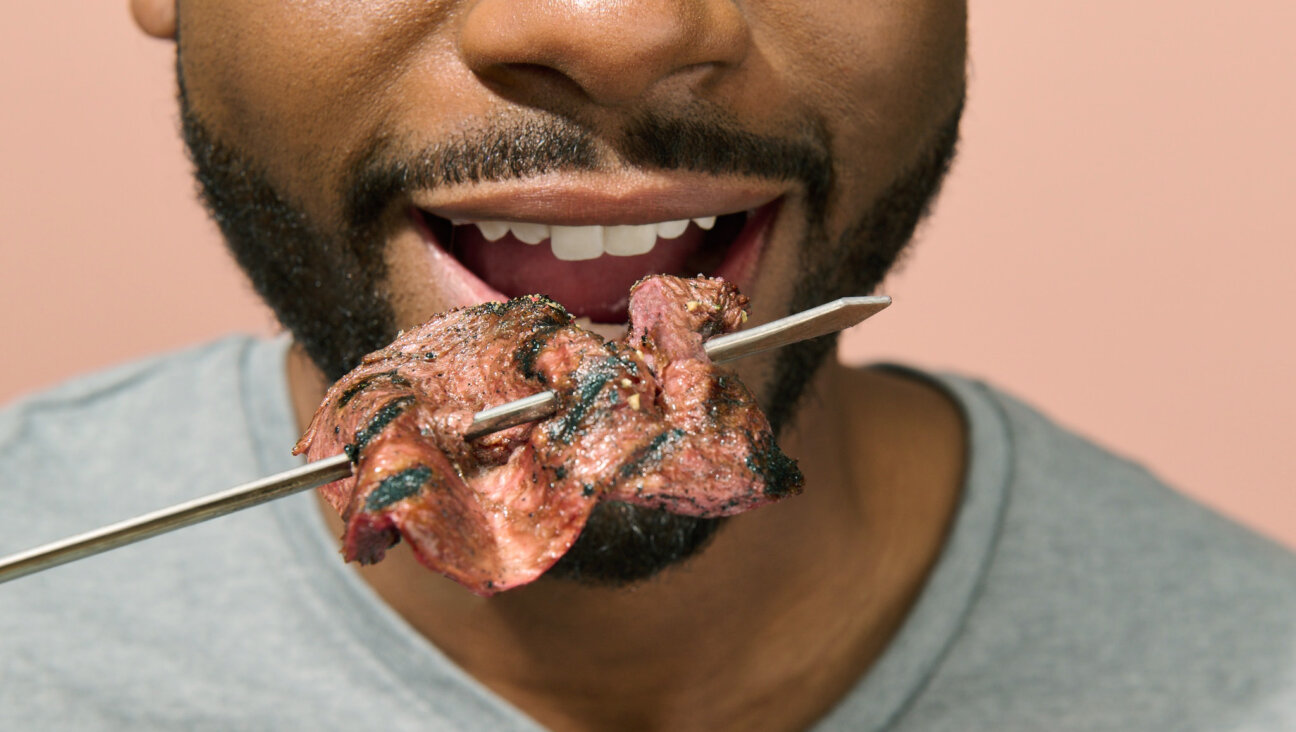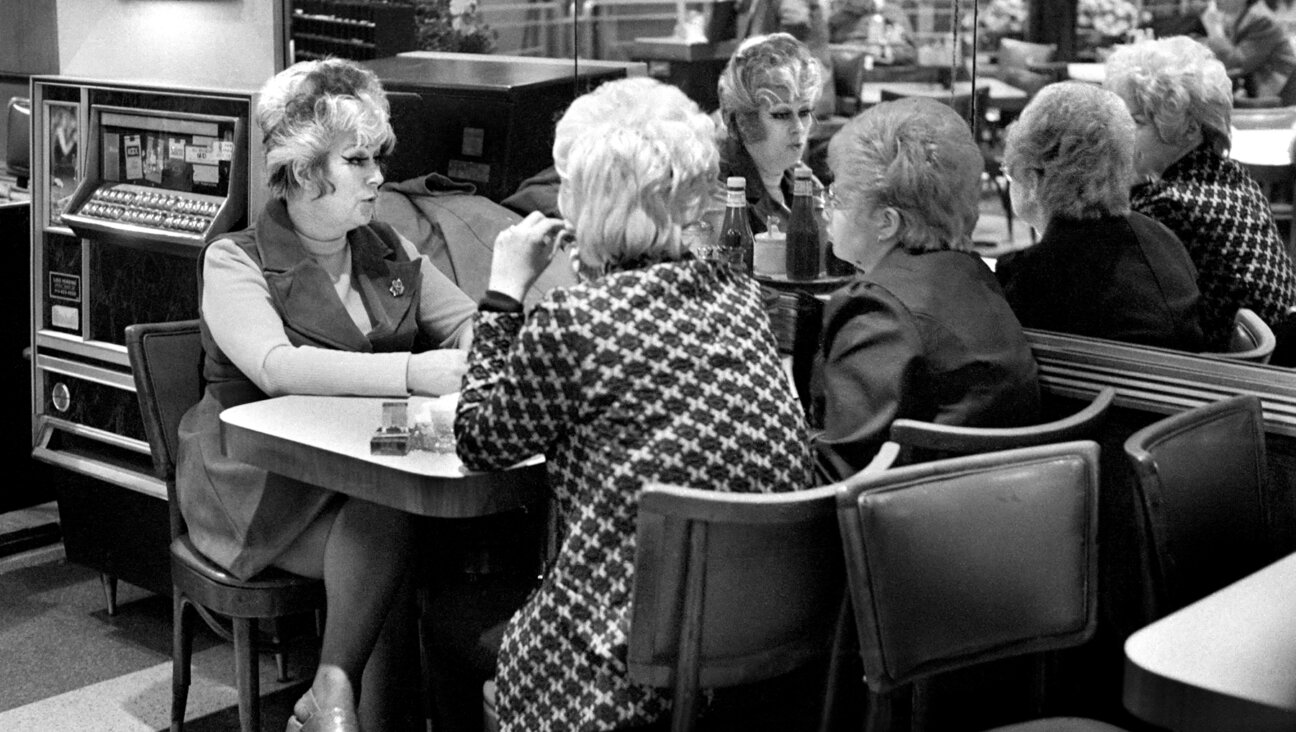What Philip Roth Taught Us About The Jewish Appetite, Liver And Beyond

The author Philip Roth. Image by Jenny Anderson/Getty Images
“So. Now you know the worst thing I have ever done. I fucked my own family’s dinner,” Philip Roth famously wrote in Portnoy’s Complaint, a line that remains, decades later, as compelling as the first time I read it. It was the idea of food as sex as solo activity as sustenance. There was an unabashed bravado in it. And it made Roth a literary celebrity.
In September 1981, Roth told Esquire that “to become a celebrity is to become a brand name. There is Ivory Soap, Rice Krispies, and Philip Roth. Ivory is the soap that floats; Rice Krispies the breakfast cereal that goes snap-crackle-pop; Philip Roth the Jew who masturbates with a piece of liver.” That line, about guilt and food and sex, became part of Roth’s legacy whether he liked it or not. Now when I think about Roth, I think about Jewish mothers, Jewish guilt, and Jewish food.
When I think about Philip Roth, I think about discovering, at the age of fourteen, while sneak-reading Goodbye Columbus at my grandmother’s house, that in fact having a refrigerator overflowing with fruit was a distinguishing sign of class. Our working class protagonist Neil is awed by the sight of “greengage plums, black plums, red plums, apricots, nectarines, peaches, long horns of grapes, black, yellow, red, and cherries, cherries flowing out of boxes and staining everything scarlet.” The description is tinged with eroticism, envy and awe. “Oh Patimkin!” he later declares. “Fruit grew in their refrigerator and sporting goods dropped from their trees!” Money makes the world go round everywhere, but especially in Roth’s works, where money keeps upper-class Jewish refrigerators well-stocked, where the working-class Neil is easily impressed by a cornucopia of freshness, while the upper-class Brenda Patimkins of the world lounged by their pools, tossing grapes into their lipsticked mouths.
When Roth discussed food, he was discussing class: What you ate made you who you were.
And his favorite personality — in this discussion of Jews, class and identity — was the Jewish mother. She berated, she aroused, she fed, and she worried. Portnoy’s mother, in Portnoy’s Complaint, tells Portnoy that if all he ate was the food she so lovingly cooked for him, he “wouldn’t be running to the bathroom 50 times a day. You go to Harold’s Hot Dog and Chazerai Palace and you eat French fries with Melvin Weiner. Don’t you? Don’t lie to me either.” If Portnoy isn’t guilty of straying away from his mother’s food, he should be. Consuming your mother’s food is consuming her love for you, and buying non-kosher hotdogs is a tacit rejection of that love. It’s putting the id back in the yid, where it belongs, reducing said yid to a pile of treif-eating, mother-betraying drek.
“I’m the only one who gives her a whole can of tuna for lunch, and I’m not talking dreck, either. I’m talking Chicken of the Sea, Alex,” Sophie Portnoy announces to the reader, with no small amount of pride. Sophie Portnoy cannot resist the opportunity to show her generosity: See, Jews aren’t stingy! It was a whole can of tuna! And not just any old garbage tuna. It was Chicken of the Sea!
For Roth, food was more than just sustenance — it was at the heart of self-discovery, and perhaps even a symbol of the fleeting nature of life, too.
“Of what do you ever get more than a taste?” Roth wrote in The Dying Animal,. “That’s all we’re given in life, that’s all we’re given of life. A taste. There is no more.”
Shira Feder is a writer for the Forward. You can reach her at [email protected]





















